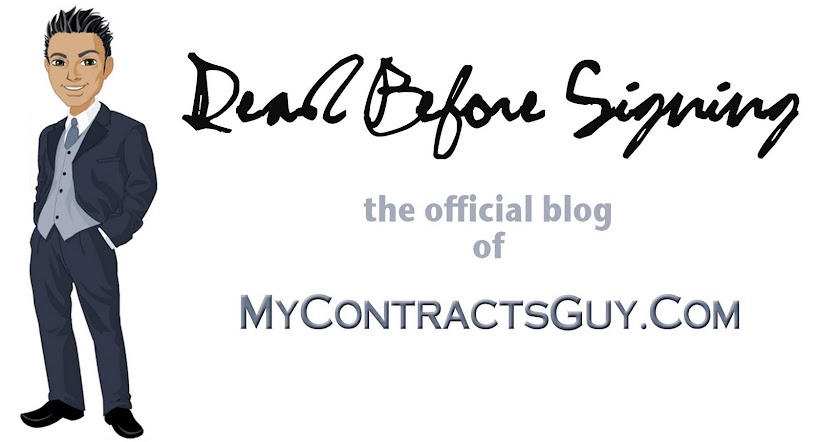 I'll bet you've heard the oft-repeated refrain that "non-competes" aren't enforceable in California, and for the most part it's very true. California Business and Professions Code Section 16600 states:
I'll bet you've heard the oft-repeated refrain that "non-competes" aren't enforceable in California, and for the most part it's very true. California Business and Professions Code Section 16600 states:Except as provided in this chapter, every contract by which anyone is restrained from engaging in a lawful profession, trade, or business of any kind is to that extent void.
It then goes on to give the two exceptions to this simple rule, but in that short and sweet sentence, the State of California forbid nearly all non-compete agreements. Of course the rule is defined by its exceptions, so I won't keep you waiting to find out what they are. The statutory version lists them (in relevant part) as:
16601. Any person who sells the goodwill of a business, or any owner of a business entity selling or otherwise disposing of all of his or her ownership interest in the business entity, or any owner of a business entity that sells (a) all or substantially all of its operating assets together with the goodwill of the business entity, (b) all or substantially all of the operating assets of a division or a subsidiary of the business entity together with the goodwill of that division or subsidiary, or (c) all of the ownership interest of any subsidiary, may agree with the buyer to refrain from carrying on a similar business within a specified geographic area in which the business so sold, or that of the business entity, division, or subsidiary has been carried on, so long as the buyer, or any person deriving title to the goodwill or ownership interest from the buyer, carries on a like business therein.
and
16602. (a) Any partner may, upon or in anticipation of any of the circumstances described in subdivision (b), agree that he or she will not carry on a similar business within a specified geographic area where the partnership business has been transacted, so long as any other member of the partnership, or any person deriving title to the business or its goodwill from any such other member of the partnership, carries on a like business therein.
And if you're anything like I used be before law school - you stopped reading those as soon as your eyes began to glaze over and you started to feel inexplicably sleepy. So what can you really take away from this rule and these exceptions? A few very simple points:
1. Neither of the exceptions has anything to do with employees, which is to say, if you're an employee (who doesn't own any substantial part or piece of a business) then a non-compete agreement can not be enforced against you.
2. You can't be given a nominal amount of stock or ownership of a company to get you into one of the exceptions.
3. It is still illegal to steal trade secrets, and most California companies will use very robust versions of this prohibition to construct a de facto non-compete. Be very cautious about employment agreements that include lengthy and sweeping definitions of what constitutes trade secrets for a new employer.
4. If you do own all or part of a company and it's sold - you will likely be signing a non-compete; but it still must be reasonable in geographic scope and term. E.g. if you sell a business that was selling widgets in California, a non-compete that forbids you from selling widgets in West Virginia isn't enforceable, nor is one that forbids you from doing it for twenty years. If you're not certain what "reasonable" is - ask your lawyer; if you're selling a company without a lawyer, then you've likely got a whole lot more problems than the scope of your non-compete.
The California protection against non-compete agreements is the most robust in the nation, and likely the world. As a matter of public policy, California has decided that of paramount importance is a citizen's right to earn a living free of restriction. This gives the state's employees a great deal of power in deciding where to work and for how much. Despite the creative and valiant attempts to circumvent and thwart this prohibition, the state's jurists have affirmed it over and over again. This isn't a substitute for your own vigilance when entering into a new employment agreement, but can offer some peace of mind as you do so.
As always, when in doubt, consult an attorney when signing any new employment agreement, especially if it includes non-compete provisions which just don't sound right.


























